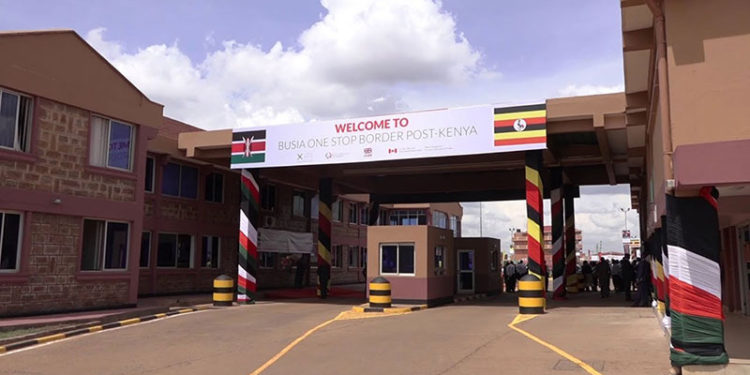A parliamentary committee wants the Kenya Revenue Authority ( KRA) to consider installing drive-through scanners and mobile scanners for bulk cargo for all One-Stop Border Posts (OSBPs) to the enhance seamless flow of the cargo, which has been worsened by the Covid 19 pandemic for the better part of this year.
The committee proposes provision of budget through the Supplementary Estimates for 2020/21 with priority on Malaba and Busia OSBPs and in the long-term ensure that all OSBPs are adequately equipped with drive-through scanners, mobile scanners and smart gates.
The Departmental Committee on Finance and National Planning compiled the report after its members visited KRA offices at Times Towers, Inland Container Depot, Jomo Kenyatta International Airport, the Port of Mombasa as well as Namanga, Busia and Malaba OSBPs.
Their objective was to assess the capacity of KRA to collect revenue for budget implementation as well as honouring other government obligations. The visits were undertaken between September 23 and October 10.
The National Treasury was also asked to transfer Kenya Ports Authority land in Malaba to KRA for the purpose of building a truck parking facility at Malaba. Truck drivers have been complaining of lack of a parking yard on the Kenya side of the border posts.
“Once transfer is done, the National Treasury should source funding to build the parking before the end of 2021,” the report states
The committee further wants the National Treasury and KRA to work out ways of making all OSBPs to operate 24 hours by the end of 2021.
“There is a need for regional diplomatic engagement between Kenya and her neighbours to ensure necessary infrastructure is put in place to facilitate 24 hour operations,” states the committee.
The Treasury was further asked to provide a report to Parliament on the status of Special Economic Zones particularly how they compete with the rest of East African countries within 60 days of the adoption of the report.
To effectively combat illegal trade and tax evasion at the ports of Mombasa and Kisumu, Parliament was asked to allocate funds in KRA’s budget for 2021/2022 to buy speedboats. It also noted that the taxman’s under-performance was due to under-staffing, proposing an increase of new staff.
Focus on the OSBP has been going on recently as an important cog in the supply chain. The Northern Corridor Transit and Transport Coordination Authority (NCTTCA) in a report early this year spelt out a number of recommendations to enhance seamless flow of the cargo through OSBPs.
To address the delays at Malaba border post, NCTTCA in the report generated from transport observatory reports issues No. 1 to 14, recommended full implementation of Single Customs Territory.
Established in July 2014, the SCT has reduced the cost of doing business by eliminating duplication of processes. It has also reduced administrative costs, regulatory requirements and the risks associated with noncompliance on the transit of goods. This is because taxes are paid at the first point of entry for all the partner states for a selected number of goods that are being cleared through SCT.
Most One-Stop Border Posts, one of the SCT initiatives, have recorded a reduction in clearance and transit time at the borders leading to effective use of available resources and assets at a lower cost for the cargo being cleared through SCT, NCTTCA report observed.
Malaba has in the recent past recorded higher border crossing time. The report recommended scaling up of efforts to explore the idea of opening another border station between Kenya and Uganda, preferably located between Busia and shores of Lake Victoria to ease flow of goods between the two countries.
“These delays reverse the gains made by OSBP and SCT initiative calling for enhanced systems connectivity and provision of enough parking yards at the border to reduce congestion,” the report said, adding that there is need to do border audit to identify any bottlenecks affecting the flow of traffic and if need be, review the standard operating procedures and removal of duplicate procedures.
The report recommended to the Government of South Sudan and the development partners to support the country’s National Revenue Authority to construct a dry port at Nesitu to minimize congestion and delays in clearance of goods for home use at Nimule border.
To enhance quick response towards addressing operational challenges at the border stations, the NCTTCA secretariat should support Member States in the formation of cross border stations where they do not exist.
“Furthermore, they should periodically generate and issue performance reports on the key border crossing indicators to the respective border stations as a way of monitoring performance,” the report said.





